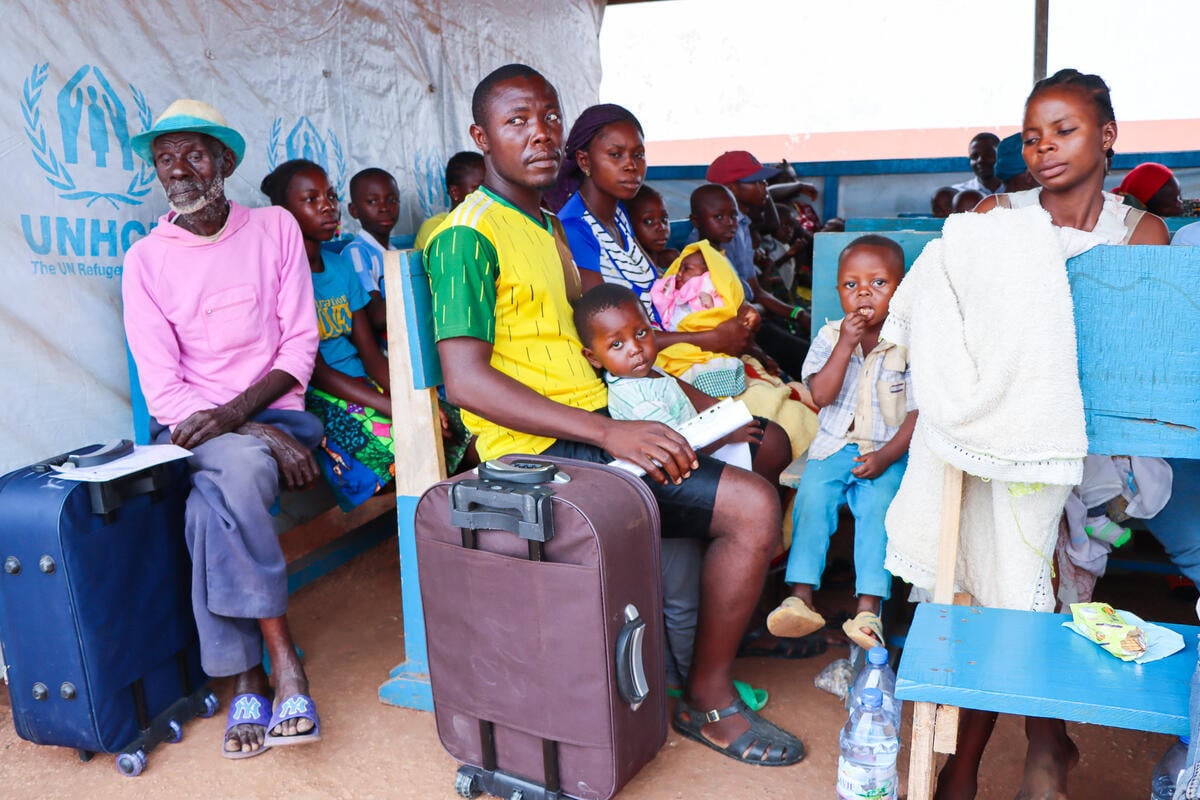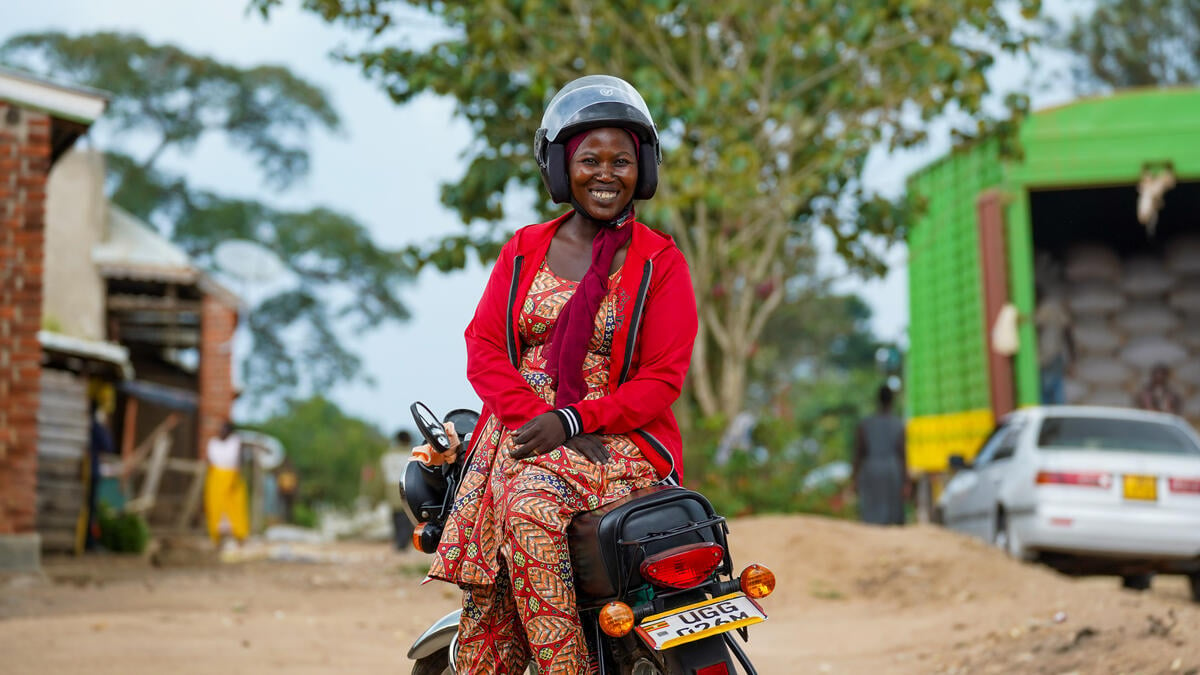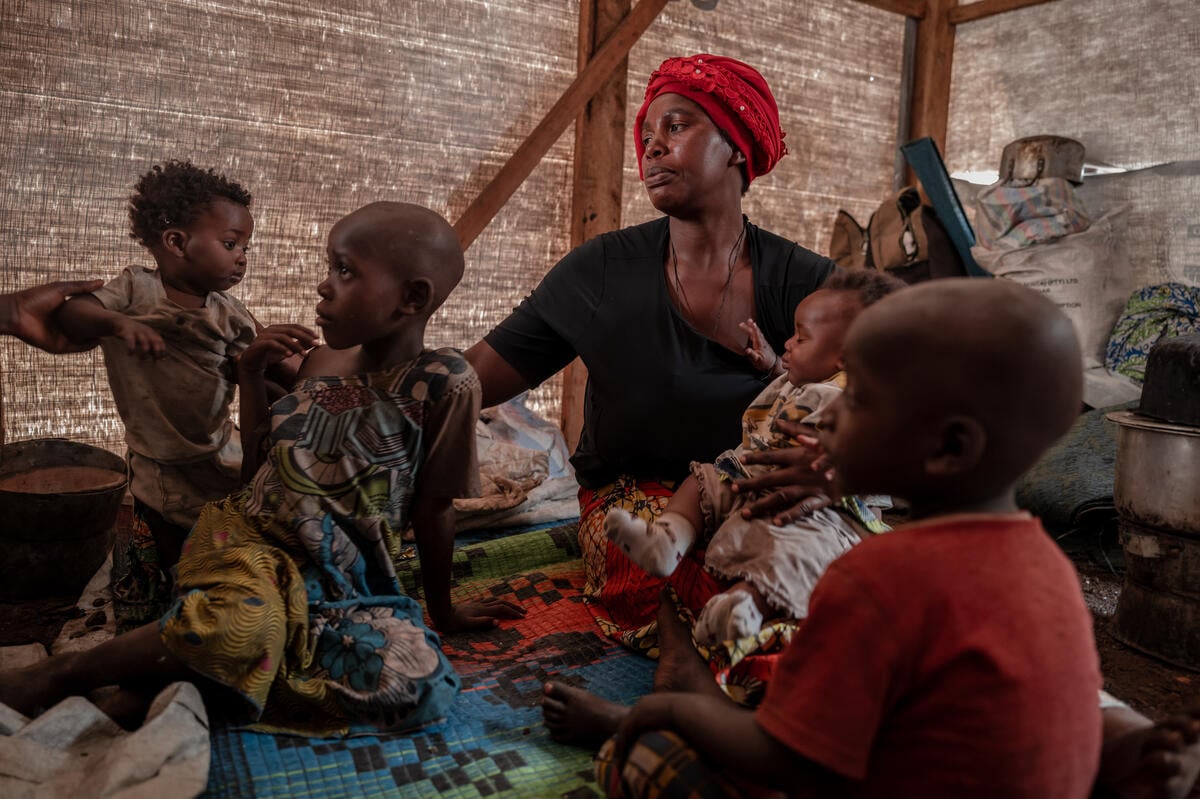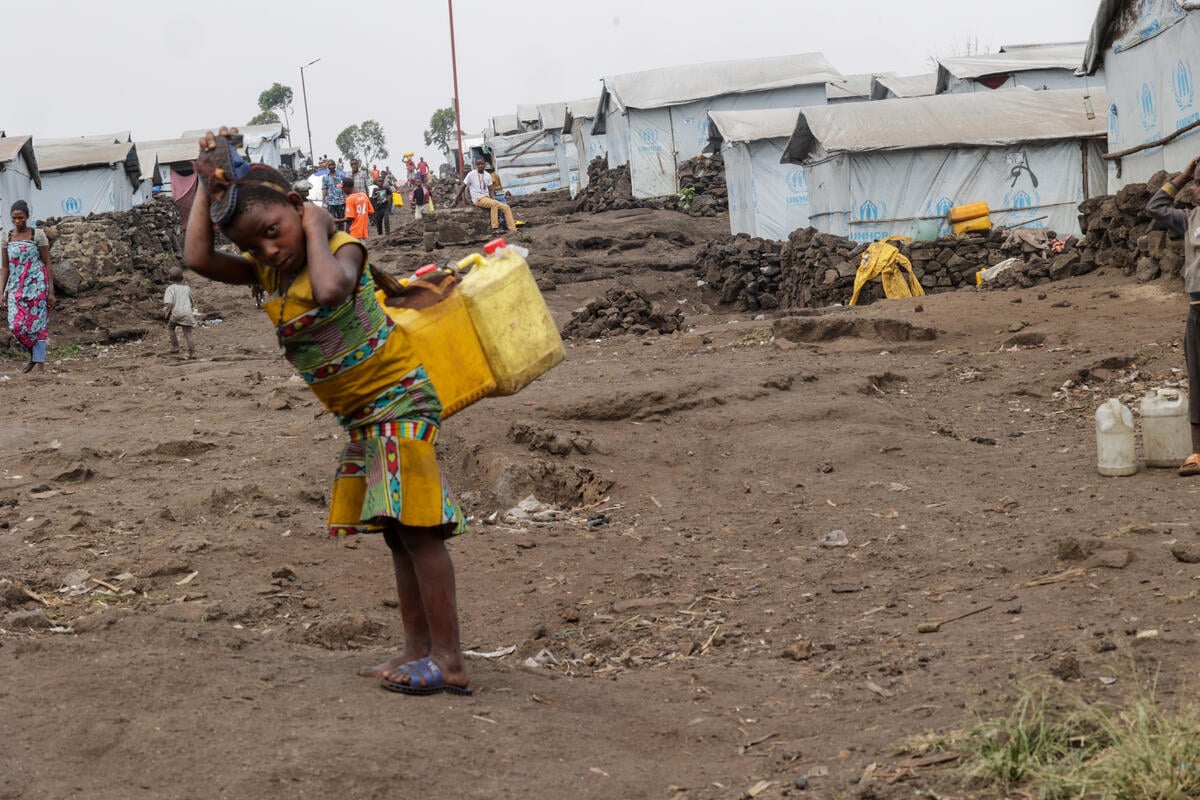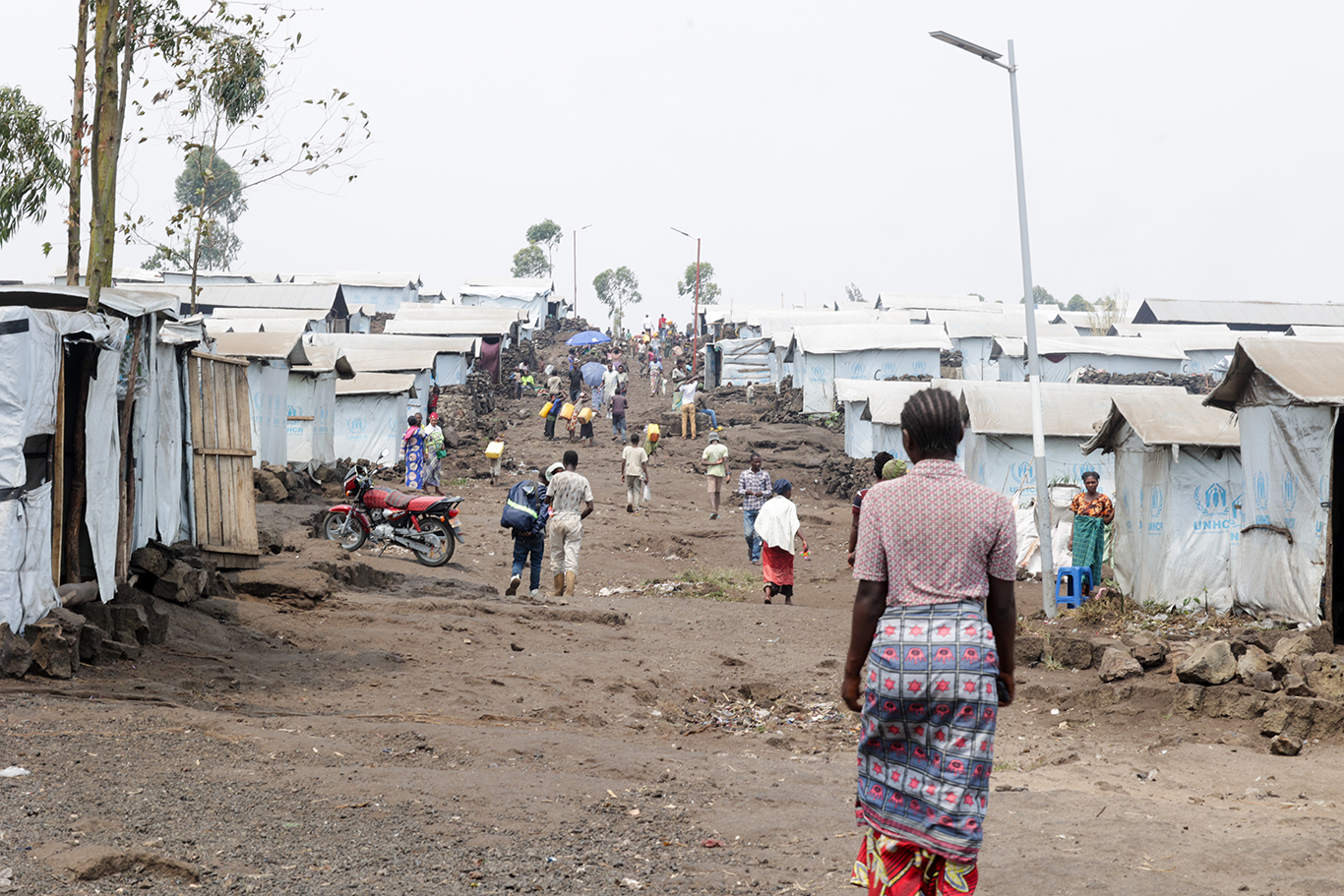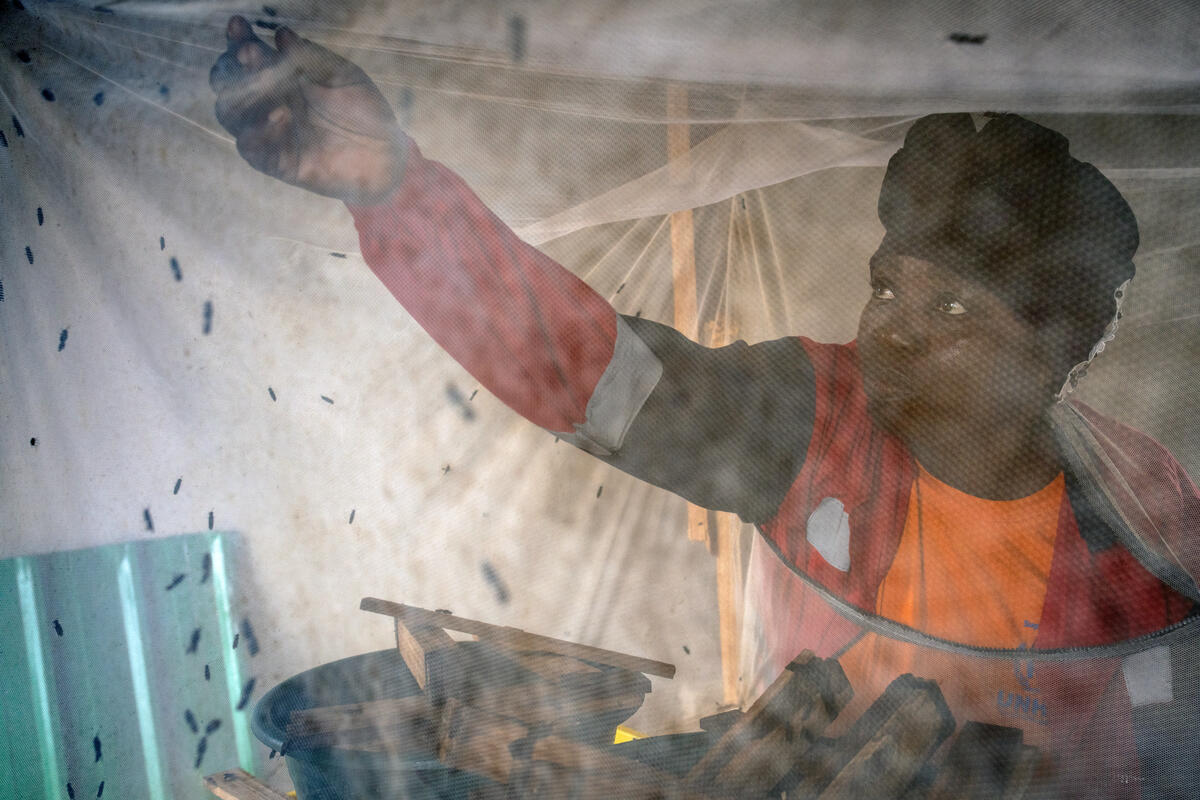Burundi: Congolese continue to arrive
Burundi: Congolese continue to arrive
Congolese refugees continue to flee from areas around the towns of Bukavu and Uvira into Burundi to escape attacks by ethnic Banyamulenge insurgents and fighting between these forces and Congolese government troops.
The number of people encamped in and around UNHCR transit sites is currently estimated at up to 17,000. We are now working to verify the figure with the Burundian government. Most of the refugees are at the Rugomobo transit camp, while centres in Gatumba and Cibitoke each house about 1,500.
Twenty-five hangars are available for shelter at the Rugombo transit centre, which is managed by UNHCR's partner GTZ. We are working to set up a second transit centre on a 10 hectare site in Cibitoke that could host more than 20,000 people.
Most of the refugees arriving from the the Democratic Republic of the Congo (DRC) are crossing without their possessions. Different ethnic groups are on the move, including Congolese ethnic Banyamulenge crossing from Uvira out of fear that they could face revenge attacks similar to those that reportedly occurred around Bukavu. Two other Congolese communities, ethnic Bafulero and Babembe are also leaving out of fear of attacks by the ethnic Banyamulenge militia or fighting between the Banyamulenge and government forces.
In addition to the new transit site in Cibitoke, an additional site once used to shelter Burundian returnees has been identified at Songore in northern Ngozi Province, while the Basorwe refugee camp in northern Muyinga Province could also shelter several thousand additional refugees. Due to the ongoing movement of refugees from eastern DRC, we expect to begin relocating groups to these new sites by the weekend.
The exodus was spurred by the outbreak of fighting around Bukavu on May 27. Several thousand Congolese have also fled into Rwanda in recent weeks.

